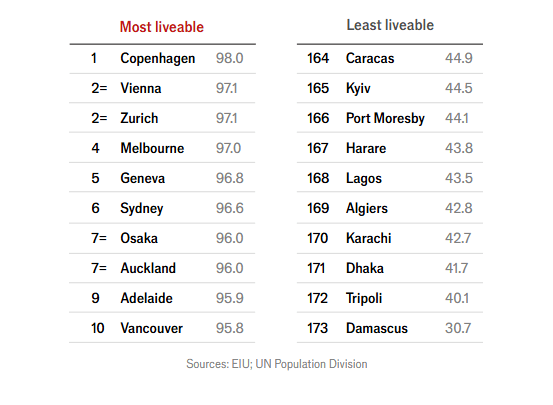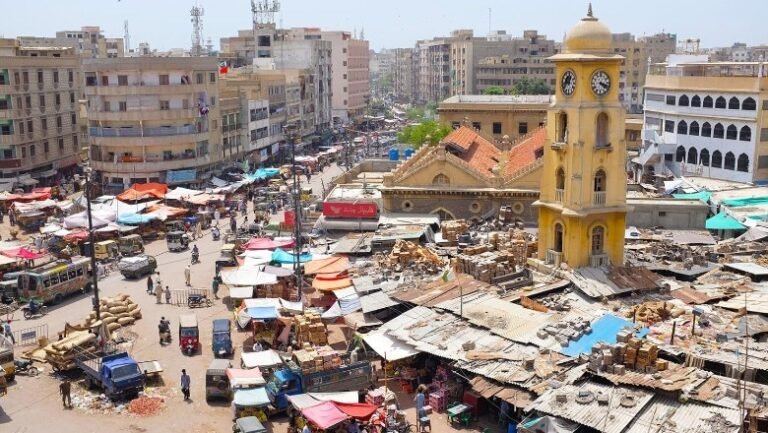The city had a score of 42.7 on the survey, with 100 being “most liveable,” and was ranked 170 out of 173 countries, only above Dhaka, Tripoli, and Damascus, according to the Economist Intelligence Unit.
Though not very well, it was the only city from Pakistan to make the list.

Karachi was ranked alongside Lagos, Tripoli, Algiers, and Damascus the previous year. Karachi was placed 169th out of 173 countries the previous year.
According to a report released by the Asian Development Bank last October, Pakistani cities are becoming less livable and more inefficient, scoring poorly on a number of competitiveness indices, and experiencing pollution, traffic, and unsightliness.
There have been other violent outbursts in the past due to the city’s greater division along religious and ethnic lines. According to the survey, due to a lack of available land and pressing housing needs, Karachi is the only city in Pakistan that is somewhat growing vertically.
According to a Forbes Adviser list from July, Karachi was rated 93.12 out of 100, making it the second riskiest city for travelers.
Karachi had the most personal security risk, according to the assessment, which took into account the dangers of crime, violence, terrorism, natural catastrophes, and economic vulnerabilities.
Furthermore, based on the availability and caliber of metropolitan infrastructure, the metropolis has the fourth-highest infrastructure security risk.

